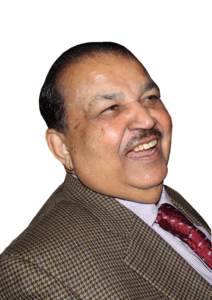By Sukhram Ramkissoon
A Canadian citizen was recently successful at the Immigration Appeal Division (IAD), as the sponsorship application made on behalf of her Moroccan spouse. The application was initially refused, but was set aside; her appeal was allowed.

In this article, I will refer to the sponsor as Cathy (not her real name). She was married in mid-2021 to Eddie (not his real name) and filed a sponsorship application, which was refused. The visa officer concluded that the relationship between Cathy and Eddie was not genuine and that it was entered into primarily so that Eddie could gain access to Canada. The officer was concerned, amongst other things, about the circumstances surrounding the couple’s first meeting online, the quick development of the relationship, and the lack of their future plans.
Immediately after receiving the negative decision, Cathy filed an appeal at the IAD. In this type of appeal, the IAD must assess whether Cathy has shown, on a balance of probabilities, that her marriage was not entered into primarily for Eddie to gain permanent resident status in Canada, and that the marriage is genuine.
At their hearing, the IAD found that the couple’s testimony was credible, spontaneous, and generally consistent. The couple provided reasonable and credible evidence regarding the genesis and the development of their relationship, detailing their numerous communications and extended time spent together during visits. They demonstrated a reasonable level of shared knowledge of their respective relationship histories, extended families, and daily lives. The IAD concluded that Cathy demonstrated, on a balance of probabilities, that the relationship is a genuine one and that it was not entered into primarily for Eddie to acquire a status or privilege under the Act and therefore, allowed the appeal.
The IAD’s focus in this type of appeal is on the intention of one or both of the spouses when they entered into their marriage. The first part of the test will not be met if, for at least one spouse, the primary purpose is to gain an immigration advantage. This assessment looks back at the time of when, at least one spouse, entered into marriage.
The second part of the test involves assessing the genuineness of the marriage at present, which can be affected by several factors that are outlined in the jurisprudential case of Chavez v. Canada.
These factors include: the intent of the parties to the marriage; the length of the relationship; the amount of time spent together; the conduct at the time of the meeting, the engagement, and the wedding; the behaviour subsequent to the wedding; the knowledge of each’s other relationships; the levels of continuing contact and communication; financial support; the knowledge of and sharing of responsibility for the care of children brought into the marriage, and the knowledge of each other’s daily lives.
The applicability of these factors varies according to the circumstances of the case. These factors are non-exhaustive, and the weight assigned to them can vary from case to case.
Some of the facts in the case include that Cathy is 51 years old and she immigrated to Canada after having been sponsored by her ex-husband in 1998. This relationship lasted from 1997 to 2015. The couple separated in 2015, but they obtained their divorce in 2020. She has two children (who are 24 and 21 years old) from her previous marriage. Eddie is 27 years old and has no children.
The IAD ruled that while the circumstances surrounding the genesis and development of the relationship raised concerns at the visa post and from the minister’s representative’s perspective at the hearing, the tribunal believes that the couple provided detailed and reasonably consistent evidence in this area, thus addressing this concern.
The couple testified that they were very frank about religion. Eddie was open about his Muslim practice and Cathy completed Muslim studies in the past. She was very fond of this religion, to the point that she converted to Islam in May of 2021. During their testimony, the couple stated that they took the time to discuss their age difference, as Cathy is 24 years older than Eddie.
In allowing the appeal the IAD found that on a balance of probabilities, Cathy and Eddie met their burden of establishing that the marriage is genuine and that it was not entered into primarily for Eddie to gain status or privilege under the Act.
The officer’s decision to refuse Eddie’s permanent resident visa was set aside, and a different officer must continue to process the application in accordance with the reasons of the Immigration Appeal Division.
SUKHRAM RAMKISSOON is a member of CICC and specialises in Immigration Matters at No. 3089 Bathurst Street, Suite 219A, Toronto, Ontario. Phone 416 789 5756.


